Heart Attack in Elderly Women
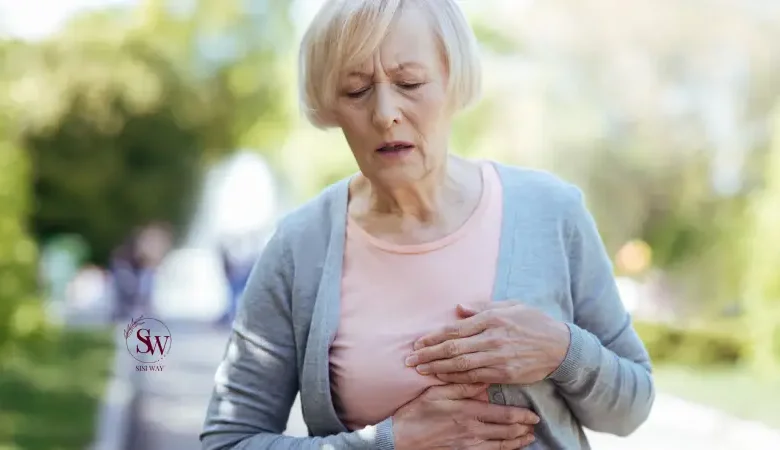
Heart Failure in Elderly Woman
Heart attacks, also known as myocardial infarctions, are a significant health concern for elderly women. As age advances, the risk of cardiovascular diseases, including heart attacks, tends to increase. This article of sisiway aims to shed light on the unique aspects of heart attack in elderly woman, including their risks, symptoms, and preventive measures.
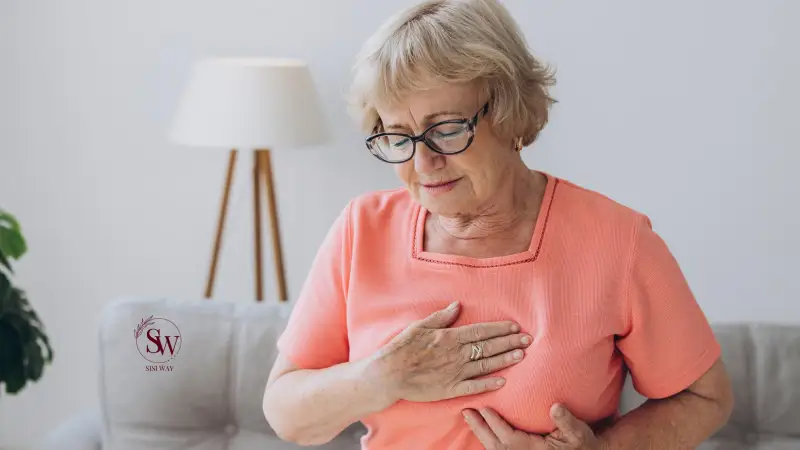
Understanding the Risks of Heart Failure:
Understanding the risks of heart attacks in elderly women is crucial for effective prevention and management. As women age, several factors contribute to an increased susceptibility to heart attacks. Age-related changes in the cardiovascular system, such as the stiffening of blood vessels and reduced elasticity, can impair blood flow and increase the workload on the heart. Additionally, elderly women may have a higher prevalence of comorbidities like hypertension, diabetes, and obesity, which further elevate the risk of heart attacks. Certainly, there are strategies for preventing type 2 diabetes, which is highly prevalent among women, discussed in the article ‘How to Prevent Type 2 Diabetes.’ We recommend reading it for valuable insights and recommendations. It is important to recognize that women may experience unique risk factors, including hormonal changes associated with menopause and a family history of heart disease. By comprehending these risks, healthcare providers and individuals can take proactive steps to mitigate them and promote heart health in elderly women.
Another significant risk factor for heart attacks in elderly women is the presence of chronic conditions. Conditions such as hypertension and diabetes, which commonly affect older individuals, can contribute to the development and progression of heart disease. Hypertension increases the strain on the heart by forcing it to pump against elevated blood pressure, while diabetes can lead to the accumulation of plaque in the arteries, reducing blood flow to the heart. Furthermore, the coexistence of multiple chronic conditions can exacerbate the risk, as they often share common risk factors and interact with one another. Therefore, comprehensive management of these chronic conditions is essential in reducing the risk of heart attacks in elderly women, involving regular monitoring, medication adherence, and lifestyle modifications.
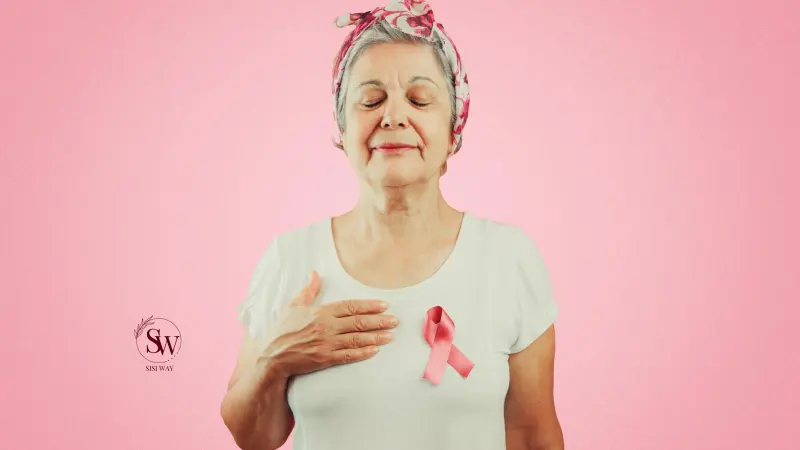
symptoms of heart problems in elderly woman
Symptoms and presentation of a heart attack in elderly women can differ from those experienced by younger individuals or men. It is important to recognize these unique signs to ensure early detection and prompt medical intervention. While chest pain is a common symptom of a heart attack, elderly women may exhibit atypical or subtle symptoms that can be easily overlooked or misinterpreted.
Here are 10 symptoms and presentations of a heart attack in elderly women:
-
Chest Discomfort:
While chest pain is a common symptom, elderly women may experience discomfort rather than intense pain. This can range from a sensation of pressure, tightness, or squeezing in the chest.
-
Shortness of Breath:
Elderly women may feel breathless or have difficulty catching their breath, even during minimal physical exertion or at rest.

-
Fatigue and Weakness:
Unexplained fatigue and weakness, which may be attributed to age or other factors, can be indicative of a heart attack in elderly women.
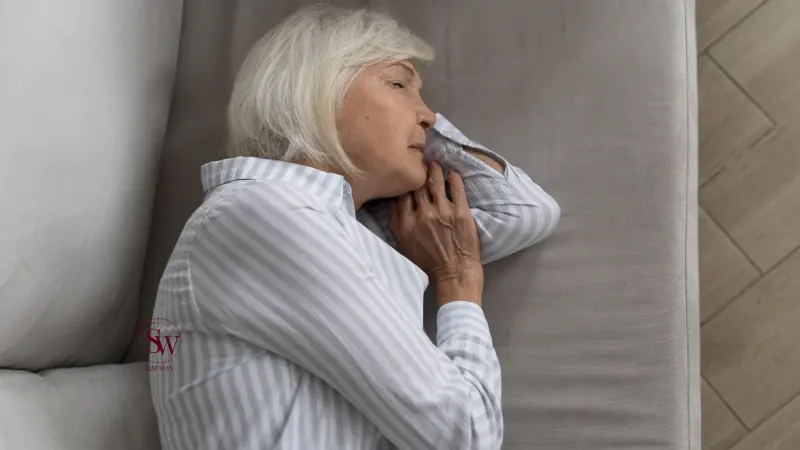
-
Lightheadedness or Dizziness:
Some women may feel lightheaded or dizzy, either suddenly or gradually leading up to a heart attack.
-
Jaw, Neck, Back, or Arm Discomfort:
Elderly women may experience discomfort, pain, or aching sensations in the jaw, neck, back, or arms. This pain may radiate from the chest or be localized in these areas.
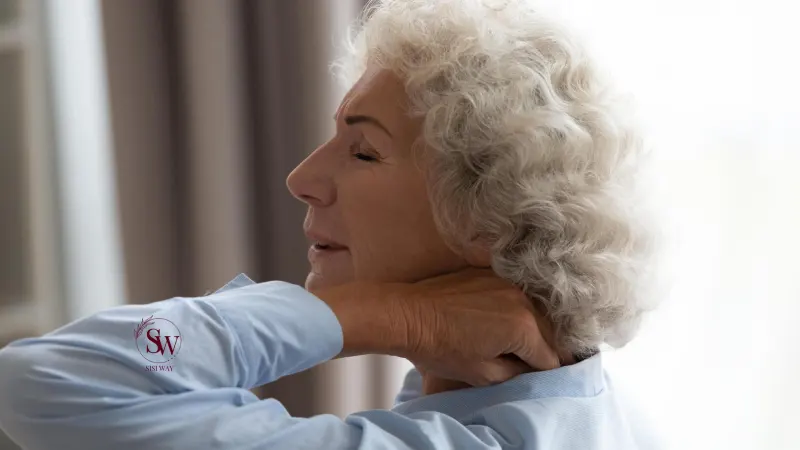
-
Nausea and Vomiting:
Nausea and vomiting can occur during a heart attack, which may be mistaken for gastrointestinal issues.
-
Indigestion or Heartburn:
Some elderly women may experience symptoms similar to indigestion or heartburn, which can be misleading and delay proper diagnosis.
-
Cold Sweats:
Profuse sweating, accompanied by a cold and clammy feeling, can occur during a heart attack.

-
Anxiety or a Sense of Impending Doom:
Feelings of anxiety, uneasiness, or a sense of impending doom can sometimes precede or accompany a heart attack.
-
Confusion or Memory Problems:
Elderly women may experience confusion, disorientation, or memory problems during a heart attack, which can be mistaken for age-related cognitive changes.
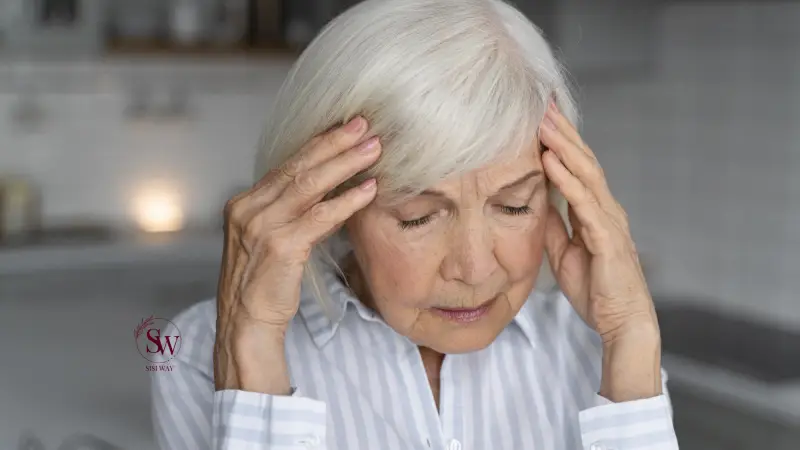
It is important to note that the presentation of symptoms can vary among individuals, and not all symptoms may be present. If an elderly woman experiences any of these symptoms, seeking immediate medical attention is crucial for timely diagnosis and treatment.
Preventive Measures of heart attacks in elderly women:
Preventive measures play a vital role in reducing the risk of heart attacks in elderly women. By adopting healthy lifestyle choices and managing underlying health conditions, individuals can significantly improve their heart health and overall well-being. Here are several preventive measures that are particularly relevant for elderly women:
- Regular Health Check-ups: Routine medical check-ups are essential for monitoring blood pressure, cholesterol levels, and other important indicators of cardiovascular health. Regular screenings can help identify and manage risk factors or underlying conditions that contribute to heart attacks.

- Healthy Diet: A balanced and nutritious diet is crucial for maintaining heart health. Elderly women should focus on consuming a variety of fruits, vegetables, whole grains, lean proteins, and healthy fats while limiting the intake of processed foods, saturated fats, and excessive sodium. A heart-healthy diet can help control blood pressure, cholesterol levels, and weight, reducing the risk of heart attacks.
- Physical Activity: Engaging in regular physical activity is beneficial for cardiovascular health. Elderly women should aim for a combination of aerobic exercises (such as brisk walking, swimming, or cycling) and strength training exercises (using light weights or resistance bands) to improve heart function, maintain muscle strength, and manage weight.
- Medication Adherence: If prescribed medications for conditions such as hypertension, diabetes, or high cholesterol, it is crucial to take them as directed by healthcare professionals. Adhering to medication regimens can help control these conditions and minimize the risk of heart attacks.
- Smoking Cessation: Quitting smoking or avoiding exposure to secondhand smoke is essential for heart health. Smoking significantly increases the risk of heart attacks, so elderly women should seek support and resources to quit smoking and create a smoke-free environment.

- Stress Management: Chronic stress can negatively impact heart health. Elderly women should practice stress-management techniques such as deep breathing exercises, meditation, yoga, or engaging in hobbies and activities that promote relaxation and emotional well-being. If you’re interested in learning ways to manage stress and anxiety to promote heart health, we recommend reading the article ‘How to Manage Stress and Anxiety?’ It provides valuable insights and techniques for taking care of your heart
- Weight Management: Maintaining a healthy weight is important for reducing the risk of heart attacks. Elderly women should aim for a healthy body weight through a combination of regular physical activity and a balanced diet.
- Regular Sleep: Quality sleep is essential for heart health. Aim for 7-8 hours of uninterrupted sleep each night to support overall well-being and reduce the risk of heart attacks.
- Social Support: Emotional support and social connections are crucial for maintaining heart health. Active participation in social activities, spending time with loved ones, and seeking support from friends and family can help reduce stress and improve heart health.
- Education and Awareness: Educating oneself about heart health, understanding the signs and symptoms of a heart attack, and staying informed about the latest research and guidelines are important preventive measures. Elderly women should actively seek information, attend educational programs, and engage in discussions with healthcare professionals to make informed decisions about their heart health.
By implementing these preventive measures, elderly women can significantly reduce their risk of heart attacks and enjoy a healthier and more fulfilling life. It is important to consult healthcare professionals for personalized advice and guidance based on individual health status and needs.
Read more: Kidney Stones in Women
Awareness about heart attacks in elderly women:
Education and awareness about heart attacks in elderly women are vital for early detection, prevention, and prompt medical intervention. Many elderly women may not be aware of the unique symptoms and risk factors associated with heart attacks, which can lead to delayed diagnosis and treatment. Educational initiatives can provide information on the atypical symptoms that elderly women may experience, such as shortness of breath, fatigue, jaw or arm discomfort, and lightheadedness. By increasing awareness of these symptoms, individuals can recognize potential warning signs and seek medical attention promptly, improving the chances of a positive outcome. Additionally, education can highlight the risk factors specific to elderly women, including age, hormonal changes, chronic conditions, and lifestyle factors. By understanding these risk factors, elderly women can take proactive measures to manage their health, such as adopting a heart-healthy lifestyle, seeking regular medical check-ups, and adhering to prescribed medications.
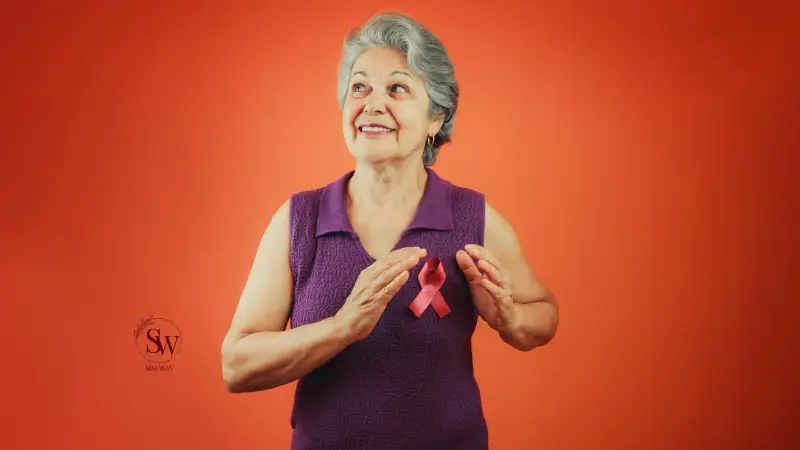
Education and awareness efforts also empower elderly women to be proactive advocates for their heart health. By providing accurate and accessible information, individuals are better equipped to make informed decisions about their lifestyle choices, seek appropriate medical care, and actively participate in their healthcare journey. Educational campaigns can also emphasize the importance of preventive measures, such as regular physical activity, a balanced diet, weight management, stress reduction, and smoking cessation. By promoting these strategies, education and awareness initiatives can inspire positive behavior changes and empower elderly women to take control of their cardiovascular health. Furthermore, education can foster a sense of community and support networks, allowing elderly women to share experiences, knowledge, and resources, creating a supportive environment for promoting heart health in this vulnerable population.
FAQ
- What are the atypical symptoms of a heart attack in elderly women?
Atypical symptoms of a heart attack in elderly women can include shortness of breath, fatigue, lightheadedness, jaw or arm discomfort, and nausea. These symptoms may be less pronounced or different from the classic chest pain often associated with heart attacks, making it important to recognize and act upon these signs promptly.
- What are the risk factors for heart attacks in elderly women?
Common risk factors for heart attacks in elderly women include advanced age, family history of heart disease, high blood pressure, high cholesterol, diabetes, obesity, smoking, sedentary lifestyle, and hormonal changes associated with menopause. It is crucial for elderly women to be aware of these risk factors and take preventive measures to reduce their chances of experiencing a heart attack.
- How can heart attacks be prevented in elderly women?
Preventive measures for heart attacks in elderly women include maintaining a healthy lifestyle, such as engaging in regular physical activity, following a balanced diet, managing weight, quitting smoking, and effectively managing chronic conditions like hypertension and diabetes. Regular health check-ups, medication adherence, stress management, and awareness of heart attack symptoms are also important preventive strategies. It is advisable for elderly women to consult with their healthcare providers for personalized advice and guidance on heart attack prevention.
Conclusion:
Heart attacks in elderly women require special attention due to the unique risks and symptoms they may face. By understanding these factors and implementing preventive measures, we can significantly reduce the incidence of heart attacks and improve outcomes for this vulnerable population. Early detection, prompt medical intervention, and a healthy lifestyle are key pillars in safeguarding the heart health of elderly women and promoting their overall well-being.
Also read: Every Thing about Ovarian Reserve



